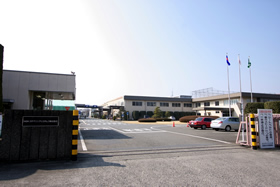
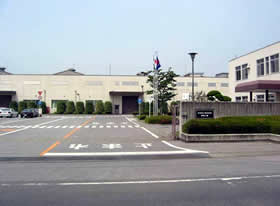
| Representative | Kazunori Iritani, President |
|---|---|
| Capital | 7,500 million yen |
| Location |
|
| Phone |
|
| Site area | 156,788㎡ |
| Number of employees | 944(as of March 31, 2016) |
| Products | Automotive product (steering systems and other products) |
| ISO Certifications |
|
Soja Plant
- Access by Train
- 10minutesbytaxi from the Shin-Maebashi Station.
- Access by automobile
- 10 minutes from Maebashi IC, Kan-etsu expressway
Akagi Plant
- Access by Train
- 20 minutes by taxi from the Isesaki Station.
- Access by automobile
- 10 minutes from Isezaki IC, Kita-kanto expressway
NSK Steering Systems develops and manufactures steering components that are essential for the steering operation of vehicles.
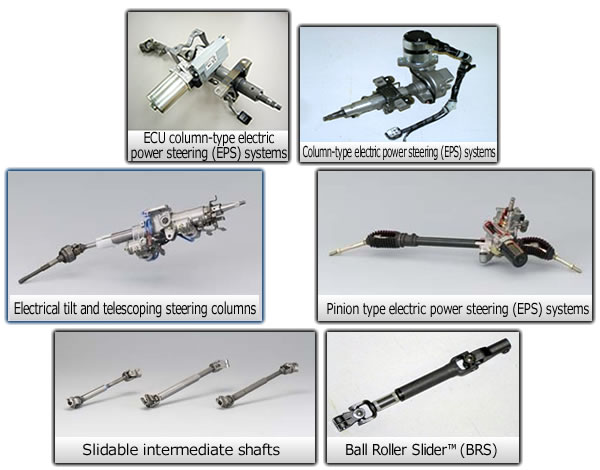
Steering system components
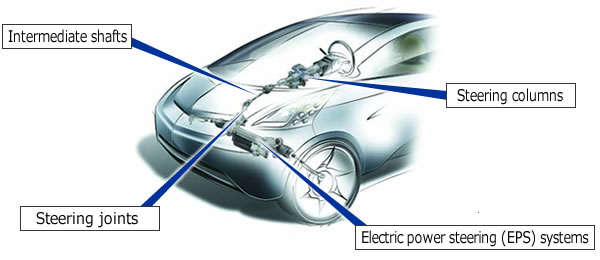
Soja Plant
| 1961 | Started operation in the Toba region, Maebashi City, as Kita Nippon Seiko (Gunma, Japan). |
|---|---|
| 1967 | Kita Nippon Seiko merges with NSK Ltd. and becomes Maebashi Plant. |
| 1975 | Soja Plant No.1 Building constructed in Soja area, operating as branch factory of Soja Plant. |
| 1980 | Soja Plant Buildings No.2 and No.3 constructed simultaneously. |
Akagi Plant
| 1989 | Started operation as branch factory of Soja Plant. |
|---|
Soja Plant/Akagi Plant
| 1993 | Maebashi, Soja and Akagi Plants consolidated to operate under a single administrative organization. |
|---|---|
| 1999 | Maebashi and Soja Plants splits off to oversee the production of specific products. |
| 2001 | Production, design and development sections for EPS splits off to form NSK Steering Systems Co., Ltd. |
| 2002 | Operation of NSK Soja and Akagi Plants transferred to NSK Steering Systems. |
| 2005 | Technology sections transferred from NSK Steering Systems to NSK. |
| 2008 | Administrative and production departments reorganized, and production departments transferred to Soja and Akagi Plants. |
Summary of the environmental and social initiatives implemented at the Soja and Akagi Plants of NSK Steering Systems Co., Ltd.
1. Environmental Initiatives
Both the Soja and Akagi Plants engage in diverse initiatives to manage chemical substances and reduce energy consumption. The plants are directing considerable effort into initiatives aimed at using materials more efficiently and reducing resource waste.
- Reducing Steering Column Components and Joint Shaft Materials
NSK Steering Systems Co., Ltd. has also developed a process to manufacture joint shafts from hollow materials for mass production. Joint shafts are conventionally made using solid rod materials, but the innovation reduces the amount of steel used and enables a 30–50% reduction in the shaft weight.
* Tube hydroforming shapes materials by enclosing tubular materials in a die, using pressurization of water inside the tube to form shapes.
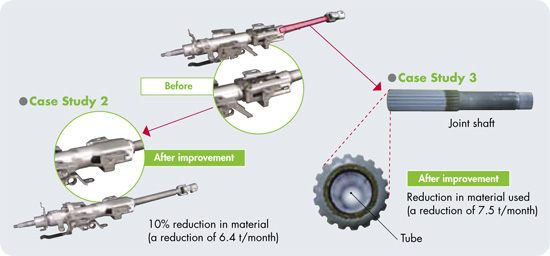
- Reducing Waste from Materials for Electric Power Steering Parts
- A part called a core plate is incorporated into the plastic gear used in the reduction gear in EPS to strengthen the section that fixes the central shaft in place. The core plate is produced using a press to punch out round pieces from sheet steel. Previously, the round pieces of metal were punched out from the steel material in a single line. By changing this to a double line, NSK reduced the waste portion by 30–40%.
2. Contributing to the Local Communities
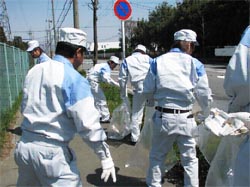
- Donation of waste paper(newspapers) to local organizations
- Clean-up activities around plants
- Donation of equipment such as notice boards to local schools
(As of January 31, 2010)
